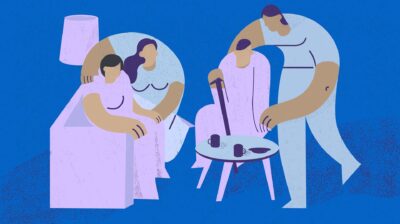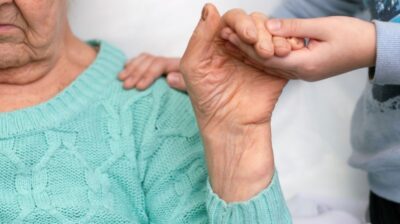What is Carer’s Benefit?
If you are a full-time carer, you may be entitled to a payment known as Carer’s Benefit

Carer’s Benefit is a payment for insured people who leave their job to care for someone who needs full-time attention.
Applying for Carer’s Benefit
You will need to meet certain requirements to receive Carer’s Benefit.
What is Carer’s Benefit?
If you need to leave your job or reduce your working hours to offer full-time care to someone, you may be entitled to receive Carer’s Benefit. You can get Carer’s Benefit for a total of two years (104 weeks) for each person you’re caring for. You can claim your payment in a single period or in separate periods for up to 104 weeks.
If you claim Carer’s Benefit for less than six weeks in a row in any period, you must wait for another six weeks before you can claim Carer’s Benefit to care for the same person again.
If you are caring for more than one person, you may get a payment for 104 weeks for each person you care for.
What is the difference between Carer’s Allowance and Carer’s Benefit?
Carer’s Allowance is another form of financial assistance you can apply for as a carer. While Carer’s Allowance is a means-tested payment (based on the amount of income you and others in your household are receiving), Carers’ Benefit is not means-tested and is based on your recent PRSI payment record. Find out more about Carer’s Allowance.
Am I eligible for Carer’s Benefit?
In order to qualify for Carer’s Benefit you will have to meet the following requirements:
- You are over 16
- You have been employed for at least eight of the last 26 weeks for a minimum of 16 hours per week (or 32 hours per fortnight)
- You are not living in a hospital or institution
- You are not taking part in employment, self-employment, voluntary work, training or education courses for more than 18.5 hours a week
- You aren’t earning more than €350 a week after taxes
- You meet the social insurance (PRSI) contribution conditions
- The person you are caring does not live in a hospital, convalescent home or other similar institution
- The person you are caring for has a disability that requires full-time care and attention
If you don’t qualify, you may instead be entitled to Carer’s Allowance.
What does it mean to need full-time care?
A person is regarded as requiring full-time care and attention when they need constant supervision throughout the day. This can be to stop them endangering themselves or to help them carry out their basic daily tasks. More information on the full-time care and attention requirements are set out in section 99 [2] of the Social Welfare Consolidation Act 2005
How much is a Carer’s Benefit payment?
There are different rates of payments depending on how many people you’re caring for.
- Caring for one person. Your maximum weekly rate is €249
- Caring for two people. Your maximum weekly rate is €373.50
Full-time carers also receive a yearly tax-free payment of €1,850, usually on the first Thursday in June. This used to be called the Respite Grant but is now known as the Carer’s Support Grant. You can use this grant in any way you wish.
What is an Increase for a Qualified Child
You can get extra money on top of these rates if you have a child who is financially dependent on you and is not the person you are a full-time carer for. This is known as an Increase for a Qualified Child. Find out more about the Increase for a Qualified Child.
How to apply for Carer’s Benefit
You can apply for Carer’s Benefit using the CARB1 application form. It’s recommended you apply 10 weeks before you leave employment. You will need to include a medical report that is signed by the person you’re caring for and their doctor. You don’t need a medical report if you’re caring for a child getting Domiciliary Care Allowance. If you’re applying for carer’s benefit for a second person you should use the CARB2 form available here.
Need more information?
We are here to answer your questions and talk through your options. Our online chat service is for 16 to 25 year olds and is available Monday to Friday, 4pm to 8pm. Chat to us now about your situation.
- Chat now to a trained Youth Information Officer
- Or leave us a message and we will email you back






